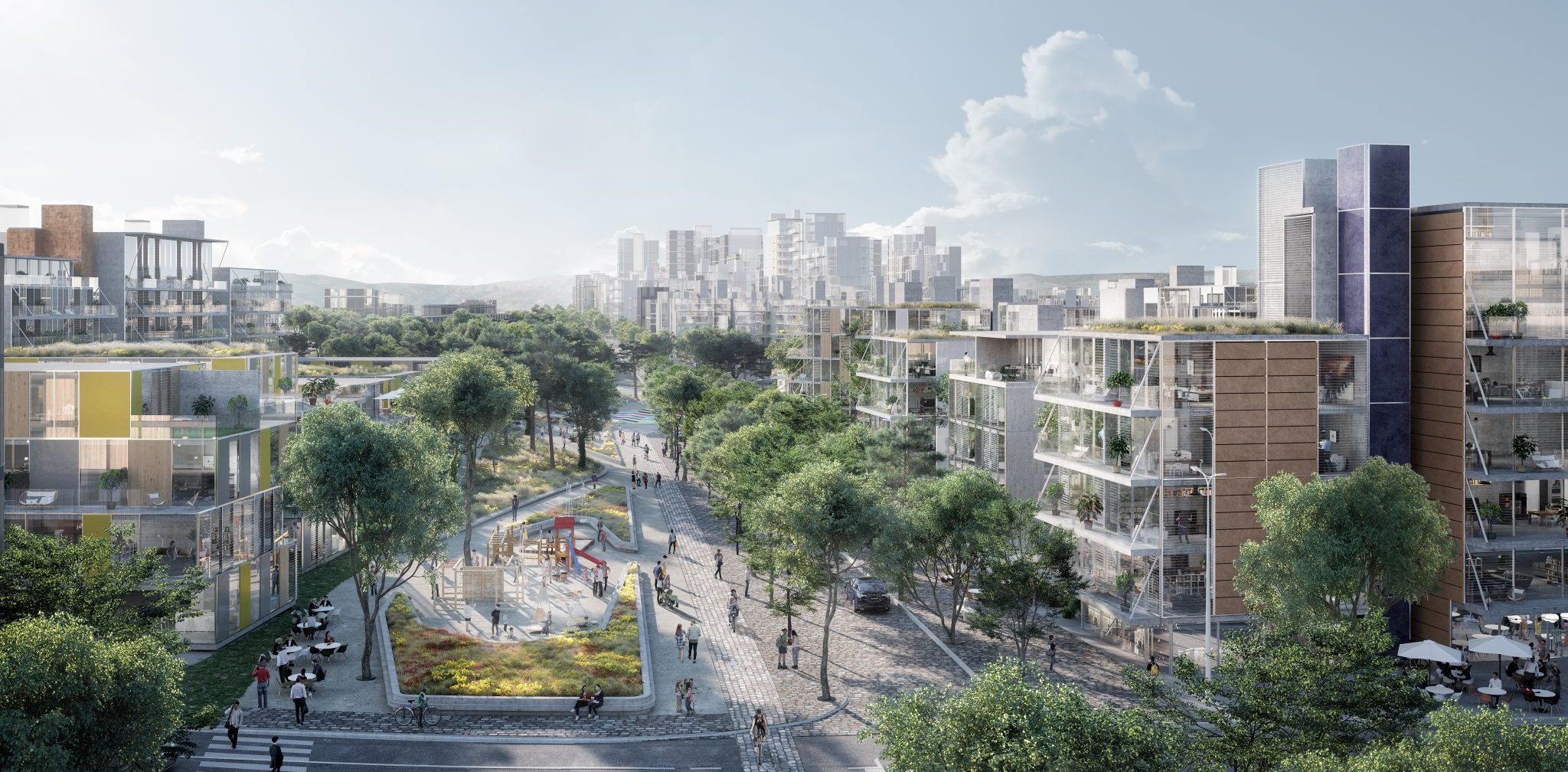30 March 2021
for Madrid Nuevo Norte

EIT Climate-KIC chooses Madrid and Milan as case studies for its new project aimed at reducing the carbon footprint of building materials.
Madrid Nuevo Norte and L’Innesto are the two projects that will be the focus of this two-year multidisciplinary study.
Climate_KIC, a European body under the auspices of the European Institute of Innovation and Technology (EIT), has launched a project to study ways to reduce the carbon footprint incorporated into materials such as bricks, with the aim of moving towards more environmentally responsible construction that is aligned with the new principles of sustainable urban planning. Madrid Nuevo Norte, in Madrid, and L’Innesto, in Milan, are the two major urban regeneration projects chosen for the programme, whose objective is to compile the best practices planned in both projects, to serve as an example for other European capitals, in order to accelerate the transformation of construction and urban planning towards the goal of zero carbon emissions.
The project led by Climate_KIC is supported by the Laudes Foundation, a philanthropic organisation whose purpose is to help companies to develop practices and activities that are beneficial to the environment and the community. The plan is based on the previous work experiences that the European organisation has carried out with Madrid and Milan within the framework of the Clean and Healthy Cities programme, in which the 15 participating cities are aiming to achieve the goal of being carbon neutral by 2030.
This project, which is planned to run for two years, develops a multidisciplinary approach to address the issue of the decarbonisation of construction that is limited not just to the technical aspects, but also includes cultural and aesthetic perspectives, as well as regulatory innovation and citizen engagement. In order to achieve the zero carbon goals, it is necessary to involve all of the components that make up the value chain of the construction process and to generate incentives for all of the people and groups affected.
One of the most important aspects to be taken into account is the adaptation of regulatory frameworks, based on the experience of key cities where significant advances have been achieved that can serve as an example for other cities. At the same time, it is important to consolidate investment in this type of construction, as well as to raise awareness in civil society of the importance and benefits of reducing the carbon footprint in the construction process. It is also important to increase the presence of wood in building construction, replacing concrete and steel where possible.
Climate_KIC experts will collaborate with project partners, including Distrito Castellana Norte (DCN) as a private partner collaborating with the Madrid City Council in the development of Madrid Nuevo Norte. Other important participants include the Polytechnic University of Madrid; the Milan City Council; the Italian Agency for Mobility, Environment and Territory; the consulting firm Arup; and the associations Bankers Without Boundaries, Dark Matter Labs and Democratic Society.
Madrid Nuevo Norte, the largest urban regeneration project in Europe, understands sustainability to be an essential element starting with the planning stage. The development of the project, which will close the divide generated by the train tracks in the north of Madrid, hopes to spearhead urban innovation aimed at creating sustainable cities from the economic, environmental and social points of view, with measures that will hopefully be scaled up and replicated in the rest of Madrid and other towns in the surrounding area. Its participation in innovation programs such as Climate_KIC and Laudes Foundation helps to take steps to achieve these objectives and transform them into concrete actions.